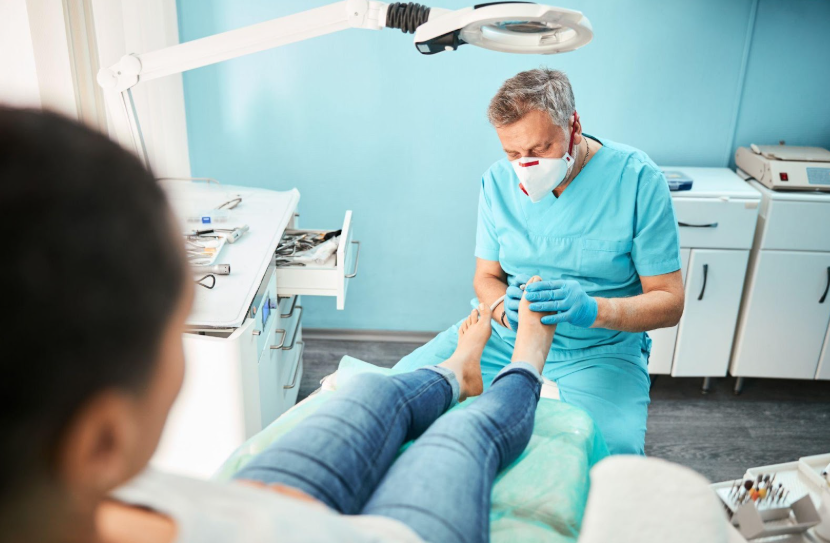A Comprehensive Guide to Orthopedics
A Comprehensive Guide to Orthopedics

Orthopedics is a specialized branch of medicine that focuses on the diagnosis, treatment, and prevention of conditions affecting the musculoskeletal system. This system includes bones, joints, muscles, ligaments, tendons, and nerves—essentially everything that helps the body move and function properly. Whether it's a sports injury, arthritis, spinal disorder, or a congenital condition, orthopedic care helps people maintain mobility and live pain-free lives.
But what exactly does orthopedic care involve, and when should you consider seeing an orthopedic specialist? Let’s take a look at this fascinating branch of medicine a little more closely.
The History and Evolution of Orthopedics
The word orthopedics comes from the Greek words "orthos," meaning straight, and "paideia," meaning child. Originally, the field focused on correcting deformities in children, such as scoliosis and clubfoot. Over time, however, orthopedics expanded to include the treatment of musculoskeletal conditions in people of all ages.
Past orthopedic treatment primarily involved surgical intervention, but modern advancements have introduced a wide range of non-surgical approaches. Today, orthopedic specialists use techniques such as physical therapy, regenerative medicine, and image-guided treatments to help patients heal without the need for invasive procedures. Technologies like robotic-assisted surgery and 3D-printed implants have also revolutionized orthopedic surgery, making procedures more precise and recovery times shorter.
In this way the field of orthopedics has evolved significantly over time, incorporating advanced surgical techniques, minimally invasive procedures, and innovative treatments like regenerative medicine. With a growing emphasis on non-surgical options and personalized rehabilitation, orthopedic specialists work to restore function and improve the quality of life for patients of all ages.
Common Conditions Treated in Orthopedics
Orthopedic specialists diagnose and treat a vast array of conditions, ranging from acute injuries to chronic musculoskeletal disorders. One of the most common reasons people seek orthopedic care is due to joint pain, which can be caused by conditions such as osteoarthritis, rheumatoid arthritis, or bursitis. Orthopedics also covers sports injuries like torn ligaments, fractures, and dislocations, which can occur due to overuse or accidents.
Spinal disorders, including herniated discs, scoliosis, and degenerative disc disease, also fall under the umbrella of orthopedic care. These conditions can lead to chronic pain and limited mobility if left untreated. Orthopedic specialists also treat soft tissue injuries that affect muscles and tendons, including Achilles tendonitis and rotator cuff tears.
Congenital orthopedic conditions, such as hip dysplasia or clubfoot, are often diagnosed at birth or during early childhood. With early intervention and appropriate treatment, many of these conditions can be corrected, allowing children to develop normal movement and function.
Surgical and Non-Surgical Orthopedic Treatments
While many people associate orthopedics with surgery, the truth is that orthopedic specialists often explore non-surgical treatments first. Physical therapy is one of the most commonly recommended approaches, helping to strengthen muscles, improve flexibility, and reduce pain through targeted exercises. Medications, such as anti-inflammatory drugs or corticosteroid injections, may also be used to manage pain and inflammation in the joints.
Regenerative medicine has become an exciting area within orthopedics, offering innovative treatments such as platelet-rich plasma (PRP) therapy and stem cell therapy. These treatments harness the body's natural healing ability to promote tissue repair and reduce pain. Orthopedic specialists may use braces, orthotics, or assistive devices to support proper alignment and mobility while the body heals.
When conservative treatments are not enough, orthopedic surgery may be necessary. Common surgical procedures include joint replacements for hips and knees, arthroscopic surgery to repair torn ligaments or cartilage, and spinal surgeries to correct disc issues or stabilize the spine. With advancements in minimally invasive techniques, many surgeries now involve smaller incisions, reduced scarring, and faster recovery times compared to traditional open procedures.
The Role of Orthopedic Specialists
Orthopedic specialists can have different areas of expertise, depending on their focus within the field. Some specialize in sports medicine, working with athletes to prevent and treat injuries, while others concentrate on joint replacement surgery, particularly for aging individuals suffering from arthritis. Pediatric orthopedic specialists address musculoskeletal conditions in children, ensuring proper growth and development.
Orthopedic trauma surgeons handle complex fractures and injuries resulting from accidents, often performing emergency surgeries to restore function. Spine specialists focus on disorders affecting the back and neck, providing treatment options ranging from physical therapy to spinal fusion surgery. There are also hand and wrist specialists, foot and ankle experts, and those dedicated to treating musculoskeletal tumors or infections.
Regardless of their specialty, orthopedic doctors work closely with physical therapists, pain management specialists, and rehabilitation experts to provide comprehensive care. Their goal is not just to treat injuries but to help patients regain their strength, mobility, and independence.
When to See an Orthopedic Doctor
Many people hesitate to see an orthopedic doctor, assuming that their pain or discomfort will go away on its own. However, chronic pain, swelling, limited range of motion, or difficulty performing daily activities could be signs of a more serious issue. If you experience joint pain that lasts longer than a few weeks, persistent back pain, or a sports-related injury that does not improve with rest, it may be time to seek professional orthopedic care.
Orthopedic specialists can also help with conditions that develop gradually, such as carpal tunnel syndrome, plantar fasciitis, or repetitive strain injuries caused by work-related activities. Early intervention can prevent minor issues from becoming more severe and may reduce the need for surgical intervention later on.
For individuals with arthritis, an orthopedic doctor can recommend lifestyle modifications, pain management strategies, and physical therapy to slow the progression of joint degeneration. Those recovering from fractures or surgery may benefit from guided rehabilitation programs to restore strength and function.
The Connection Between Orthopedic Health and Overall Well-Being
Many people don’t realize just how much orthopedic health affects their overall well-being. When the musculoskeletal system is functioning properly, individuals can move freely, engage in physical activities, and maintain an active lifestyle. However, when chronic pain, joint stiffness, or mobility limitations arise, it can impact mental health, independence, and overall quality of life.
Chronic pain conditions like arthritis or back problems can lead to anxiety, depression, and social withdrawal due to limited mobility. Sleep disturbances are also common among individuals with orthopedic issues, as pain can make it difficult to rest comfortably. This lack of sleep can further exacerbate stress and fatigue, creating a hurtful cycle of discomfort and reduced energy levels.
Addressing orthopedic concerns early and following a treatment plan designed by a specialist can help individuals regain control over their physical health and well-being. Whether through rehabilitation, pain management, or surgical intervention, orthopedic care not only restores movement but also contributes to a happier, more active lifestyle.
The Future of Orthopedics
The field of orthopedics continues to evolve with advancements in medical technology and research. One of the most exciting developments is the use of artificial intelligence and robotics in orthopedic surgery. These technologies enhance precision, reduce surgical risks, and lead to better patient outcomes.
Biologic treatments, such as gene therapy and cartilage regeneration techniques, are also gaining traction. Scientists are exploring ways to use stem cells and growth factors to repair damaged tissues with the potential present to possibly eliminate the need for joint replacement surgery in the future. Considering how most doctors only use surgery as a last option due to the potential for further issues arising from it, this is particularly promising.
If you’re looking for an experienced orthopedic provider, look no further than our team at Bayou Bend Health System. Whatever your orthopedic needs, we’ve got you covered. Contact us to learn more about our orthopedic services or to schedule an appointment today!



